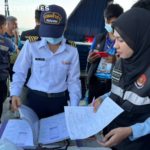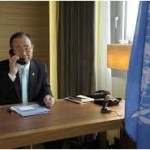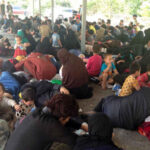
By Kesinee Taengkhiao for The Nation on 11 August 2015,
COURT OFFICES TO FOCUS ON HUMAN TRAFFICKING, GRAFT AND DRUGS; PACT ON PROSECUTION, WITNESS PROTECTION
These divisions have been created to ensure cases related to these three crimes can be tried effectively, the Criminal Court's chief judge Athip Chitsamrerng said.
The moves were part of the effort to reform the process of prosecuting human-trafficking cases after the United States decided to keep Thailand on the lowest level of its "Trafficking in Persons" (TIP) report, suggesting that the Kingdom's work on combating this problem was not effective enough.
Athip also suggested that reforms be made to laws and court procedures for human trafficking, corruption and drugs.
Laws should also be amended to allow the Criminal Court to apply its "inquisitorial" system to trial processes, he said, adding that the inquisitorial system would authorise the court to investigate the case and gather evidence itself, rather than waiting for public prosecutors to do so.
He said these three were different from other crimes because of their extensive impact on the economy and society, especially corruption cases, as they undermine political stability and national security.
As the wrongdoers are usually influential figures and violence is often used to obstruct the course of justice, finding evidence is difficult and witnesses are also threatened, he said.
Agencies sign MoU
During the opening ceremony at Bangkok's Ratchadaphisek Criminal Court, five agencies signed a memorandum of understanding on sharing information on human-trafficking cases.
The agencies are the Criminal Court, the Office of the Attorney General, the Royal Thai Police, the Justice Ministry and the Social Development and Human Security Ministry.
The MoU focuses on two key points: coordination among the prosecution and witness protection.
For prosecution coordination, a centre for human-trafficking cases would be set up at each agency to tackle obstacles, while the protection aspect would focus on the rehabilitation and protection of witnesses, victims as well as their families.
In addition to the MoU, the agencies have agreed to cooperate on information sharing, training of officials and developing law in line with international standards, Thailand's obligations to the international community, and its cooperation with neighbouring countries, an official said.




